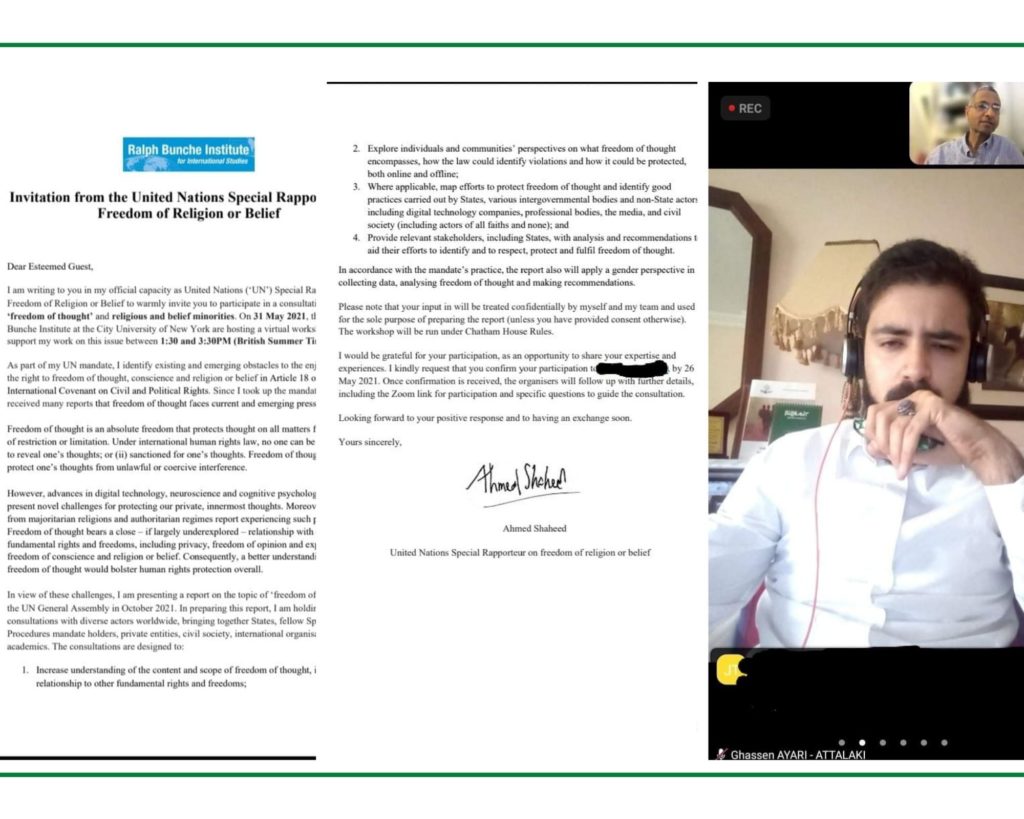OUR
NEWS & BLOGS
OUR
BLOGS
Attalaki participated in a consultation on the Freedom of Thought Report with the UN special rapporteur, Dr. Ahmed Shaheed.
By an official invitation from Dr. Ahmed Shaheed, the United Nations, Special Rapporteur on freedom of religion or belief, the Attalaki participated in the person of our colleague Ghassan Ayari in today’s meeting with the Special Rapporteur, to talk about the general situation of freedom of belief and religion in Tunisia, and this meeting falls within the framework of preparations To the office of the Special Rapporteur to draft his report on “Freedom of Thought”, which will be presented to the United Nations General Assembly in late October of this year.
Our colleague Ghassan Ayari, Public Relations and Partnerships Officer, addressed what was mentioned in the annual report on religious freedom, which was published by the Religious Freedom Committee of Attalaki earlier this year, in addition to the following points:
- Chapter 39 of the Constitution of January 27, 2014, states that the Tunisian state is “working to root the youth in its Arab and Islamic identity,” as we note that this chapter constitutes discrimination and prejudices freedom of thought and exclusion of the multicultural nature and religious diversity of our society, whether in the past or the present. Emphasizing that restricting the Tunisian identity to its Arab-Islamic character represents an obstacle to consolidating the value of diversity and cultural and intellectual richness.
- Shedding light on the issue of the lack of non-Islamic cemeteries for non-Muslim Tunisian citizens, and on the latest agreement reached with the relevant authorities. The attacks on Christian cemeteries were also discussed, without taking any serious decision to prevent their sabotage or harm.
- The conversation also touched on calls for violence and hate speech directed at non-Muslim Tunisians and others under the dome of Parliament, where we presented the most important statement of several deputies, similar to what was said by the representative of the Democratic Current, Mohamed Ammar, who described the Jewish religious temples in Tunisia as Zionism, calling for their use as a “political pressure card. on Israel”.


